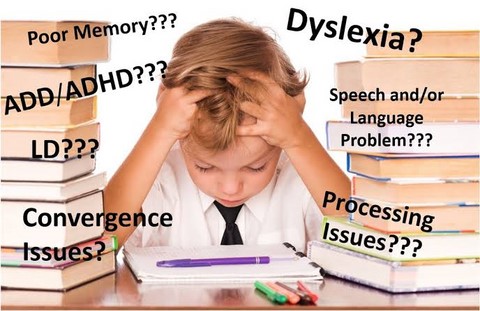Discovering & Teaching Children with Learning Disabilities
Preparation:
The course provider will send to the participants a list of materials related to the course topic that they can read in order to prepare for the course. The course provider keeps in touch with the participants and tailors the course according to their specific needs. The course provider offers support if the participants need any information related to accommodation, plane tickets or other details necessary in organising the course.
Course description
Our course includes the necessary studies for the adaptation of individuals with special learning disabilities (DYSLEXIA / DYSGRAPHIA / DYSCALCULIA), who are among individuals with special educational needs in the world, with a large percentage. The course focuses on learning the studies required for children with special needs to be able to replace them among individuals who are considered normal. Trainees will develop their theoretical knowledge and expertise in the field of children with special needs. They will also have the opportunity to see and try many different methods and activities suitable for working with children with special needs. They will also see how current tasks and approaches can be adapted to suit the needs of a dyslexic individual. They will discuss how to involve parents in the learning process and how to communicate with them and see how children should be assessed about how they can benefit from special needs. In addition, they will see and experience activities that are suitable for students with special learning disabilities, diagnostic criteria, lesson adaptation, and classroom teaching, which are currently continuing as an inclusion student.
Methodology:
All sessions are based on student-centered techniques to allow the participants to be actively involved in learning and end up with reflection time for better retention.- Team Building Sessions;
- Ice Breaking, Warm-ups and energisers
- Group Discussions;
- Debates;
- Creating an individual learning path for students;
- Problem Solving Activities;
- Project - Analysis Activities
- Query Based Activities
- Questioning;
- Goal Setting sessions;
- Decision Making Sessions;
- Action Based Strategies;
- Brainstorming;
- Planning a Building;
- Negotiation and Persuasion;
- Create a family plan
- Approach strategies
Objectives
- Learning the learning difficulties terminology
- Developing tools and techniques for dealing with students of dyslexia, dysgraphia, and dyscalculia.
- Increasing parents' participation in education
- Encouraging students to ask questions as a learning tool
- Promoting a student-based approach in education
- Developing applications related to the participation of the individual with dyslexia in the society
- Learning to overcome various challenges in the classroom: dyslexia / normal development
- Noticing children with learning difficulties in the classroom.
- Develop positioning skills in students with learning difficulties.
- develop arithmetic skills in students with learning difficulties.
- Minimize reading errors of students with learning disabilities.
- Develop reading comprehension skills of students with learning disabilities.
- Develop free text writing skills of students with learning disabilities.
- Minimize the mechanical errors in the writing of students with learning difficulties.
- Improving language and communication skills
- Learning the methods of developing reading skills
- Increasing the capacity to cooperate with parents / students
- Get practical ideas to practice in the classroom
- Integration with theories used in various European countries
- Improved awareness of inadequacy
- Internationalization at educational level
- Better understanding of practices, policies and systems in education
- To improve the education of children with special needs (dyslexic)
- To improve knowledge about best practices and latest research in the world
- Mastering teaching techniques, eg multiple intelligence, editing and structuring reading texts, reinforcing and creating different approaches to teaching
- Acquiring the practical language, new techniques and ideas to be used in the classroom…
- Development of tools and techniques for innovative problem solving.
- Encouraging students to ask questions as a learning tool.
- Early detection of risk factors in the classroom
- Development of competencies linked to professional profiles of trainees
- Trainees being able to intervene in the most competent dyslexia
- Developing the ability to find and understand good practice examples
- Trainees know the systems used in the EU most effectively
- Improving the ability of analysis of Quick Determination of the deficiency
Follow-up
Trainees will be given soft and hard copies of all lesson materials, which they can present to their colleagues in their own organizations to generate interest in project writing. In addition, a mailing list of participants will be created in order to exchange ideas/experiences. At the end of the course the participants will fill in a questionnaire in order to get a detailed feedback for the effectiveness of the training event.
Programme of training activities day-by-day:
Day 1 – MONDAY
- Welcome and registration;
- Ice-breakers and team building activities
- Understandıng Dyslexıa: A 4-Stage Awareness Game
- What are Learnıng Dısabılıtıes?
- What Are The Types Of Learnıng Dıffıcultıes?
- Defınıtıons About The Learnıng Dıffıcultıes
Day 2 – TUESDAY
- How to identify Dyslexia, Dysgraphia And Dyscalculia?
- What are Item signs? (Indicators in All School Age Groups Will Be Examined)
- How to Understand signs in Early Childhood?
- Integrating the Family in the Educational Process
- Adapting the Educational Environment
Day 3 – WENDESDAY
- Coping with feelings
- Exploratory language vs directive language
- Working with Individuals
- Practices in Preschool Period
- Practices in Primary School
- Samples from EU countries
Day 4 – THURSDAY
- Understanding behaviour
- Managing behaviour: setting up healthy routines for your child and for yourself
- Practices And Working Styles In Secondary School
- Correct Reading Methods in Individuals with Dyslexia
Day 5 – FRIDAY
- Home and school: how to balance our involvement
- Expectations vs limitations regarding academic success
- Investigation of Theorems and Applications Used in Learning Disabilty studies in the World and Europe
- Investigation of the Effect of Cognitive Strategies on Dyslexia, Dysgraphia and Dyscalculia
- Feedback, course evaluation and dissemination focus
- Your 6 month plan to implement the new knowledge and skills to your own context
- Certificate of attendance awarding






